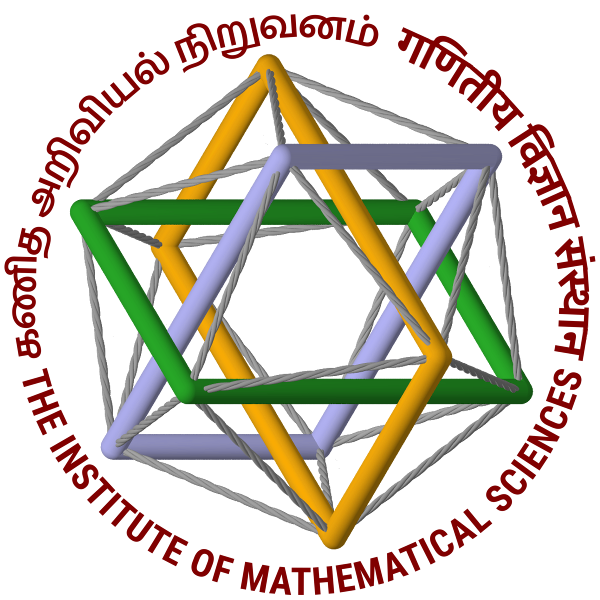A national institute for research in the theoretical sciences
Upcoming Events
Sep 25
11:30-13:00
11:30-13:00
Gopal Prakash | IMSc
Thesis Defence | Alladi Ramakrishnan Hall
Sep 26
09:00-18:00
09:00-18:00
DMG | IMSc
-
Conference | Alladi Ramakrishnan Hall
Sep 26
14:30-16:00
14:30-16:00
Yadu Vasudev | IIT Madras
TCS Seminar | E C G Sudarshan Hall
Sep 27
09:00-18:00
09:00-18:00
DMG | IMSc
-
Conference | Alladi Ramakrishnan Hall
Sep 27
09:00-18:00
09:00-18:00
DMG India | IMSc
-
Conference | E C G Sudarshan Hall





